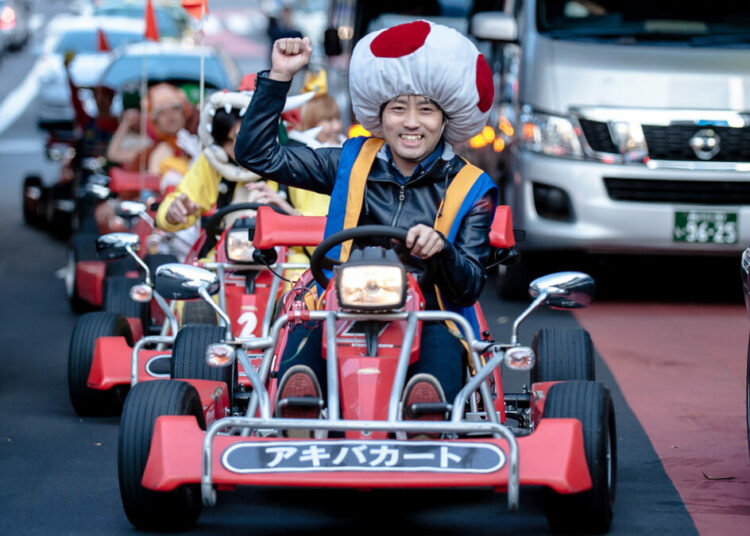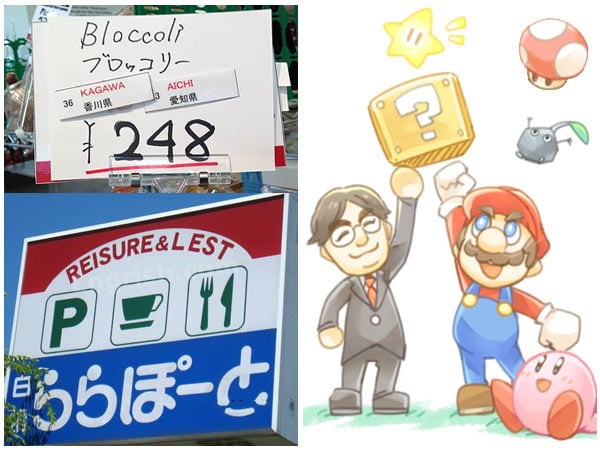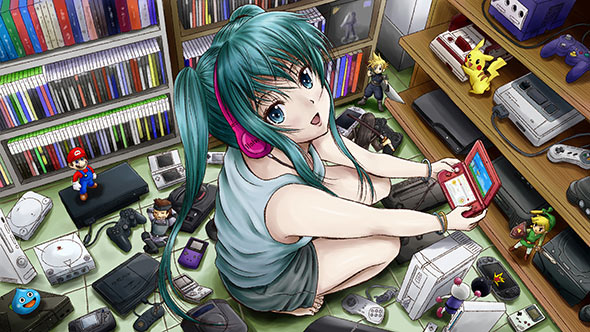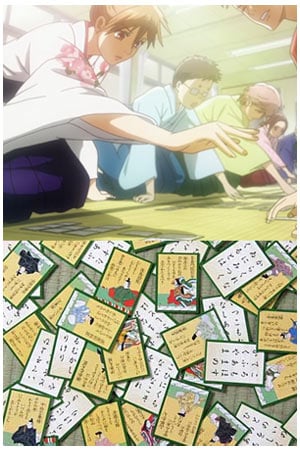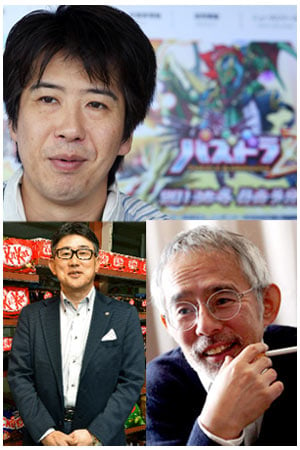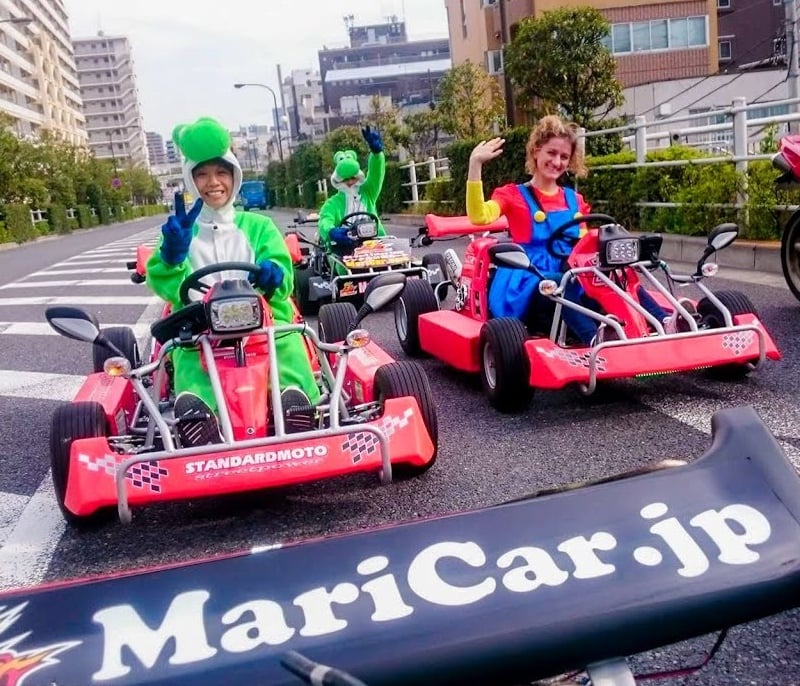
The Mario Cart Lawsuit
If you’ve visited Tokyo in the last few years, you’ve probably noticed (and likely been annoyed by) screaming foreigners driving past on loud go-carts zooming through Shibuya’s famous scramble intersection at breakneck speed. The company advertised a “real Mario Cart” experience, complete with wearing costumes from Nintendo’s famous games, and had become a smash hit with visiting foreigners. Nintendo was obviously not amused by what it viewed as abuse of its copyright, and just won its Mario Cart lawsuit, obtaining a judgment of ¥50 million (around USD$460,000) from the company. This might mean an end of an era for Mario Cart fans, and a reduced chance of me getting run over by a guy in a Yoshi kigurumi someday.
How Japan is Different from the West
Japan is in many ways an extremely Westernized nation. After a nearly bloodless transfer of power from the old Tokugawa Shogunate to a modern government with the Emperor as the symbolic head during the 1868 Meiji Restoration, Japan began modernizing by looking to Western nations for ideas. They cloned the British Parliamentary and postal systems, adopted the French prefectural model, and imported modern medicine from Germany.
But one tradition they didn’t really adopt is the Western legal system. Oh, Japan has the usual courts who administer justice — sometimes in unreasonably strict form, as Carlos Ghosn would attest — but there are a few broad differences between Japan and the West as far as legal traditions go.
- First, although Japan has a Supreme Court like other nations, society is never moved in one direction or the other by some judgment they hand down. In fact, I’ve lived in Japan for 28 years and can only remember hearing about one decision they made. This is in stark contrast to the U.S., where Supreme Court decisions have a huge effect on the direction of our society.
- In general, lawsuits are not part of Japanese culture. For example, if you’re in a car accident, the two insurance companies would work out each party’s responsibility based on a pre-determined chart, rather than going to court. Japanese try to use “common sense” to solve problems without resorting to lawsuits.
- Actually, there are almost no lawyers in Japan…at least I’ve never come across one. Instead, most legal services are done by lower-level professionals called “scriveners” who are able to do things like file deeds for land purchases, write wills and so on. There are whole prefectures without any lawyers at all, and every year the Japan Bar Association has to assign lawyers to go there to provide legal services to the few people who need them.
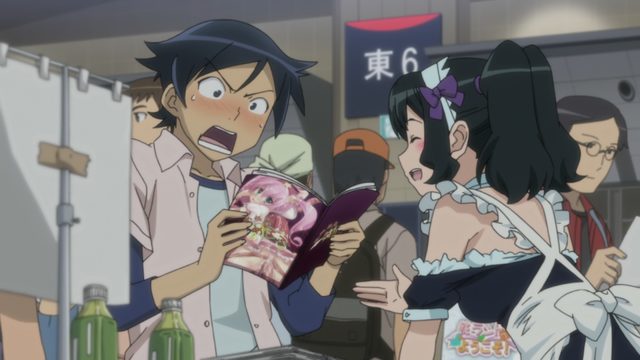
Copyright in Japan
If you’re used to buying doujinshi featuring your favorite characters doing naughty things, you might assume Japan has a pretty laissez faire attitude when it comes to copyright. Unfortunately, the opposite is often the case.
When it comes to the magical world of doujinshi and the Comiket, it’s true that Japan’s creators can’t exert any control about what fan groups do with their IP, so they ostensibly allow it, usually posting a message somewhere on their websites stating that they permit “doujin-related goods at fan events.” Part of the reason doujinshi are allowed to be made is that pretty much every professional artist in Japan from Rumiko Takahashi to Food Wars creator Shun Saeki got their start creating them, so if they ever closed down the doujin world completely, there’d be no new creators to drive the industry forward into the future.
But when it comes to areas the companies have more control over, things are different. For example, the publishers of COSmode, the excellent magazine of, by and for cosplayers, need to get written permission for every person doing a cosplay, plus the person who made the costume, plus the company that owns the IP to the character, or they can’t put it in the magazine. Want to create your own garage kit based on a famous anime character from scratch? You need a license from the IP holder or you risk serious repercussions. Want to enter the dark world of figures that are fan-modded to become lewd? This is known as 魔改造 makaizo, or “devil modifications,” and it’s treated as a serious copyright offense if you try to re-sell the figure.

I was recently approached to see if I was interested in doing a live YouTube channel in Japanese aimed at Japanese fans who might be curious to know how foreigners view anime culture. I was interested and had several meetings with the company, but once it became apparent that we’d need to obtain written permission from copyright holders to show any visual whatsoever from any show, even official promotional art released for that purpose, I lost interest. I can think of nothing less enjoyable than being the idea of shackled by silly Japanese copyright rules imposed by companies, unable to show a Gundam or Macross screenshot if they choose to withhold their permission. I just don’t need that kind of aggravation in my life.
Got any questions about the Mario Cart lawsuit, or Japan’s legal system? Hit us up on Twitter!
Great news: we’ve got even more gorgeous anime figures up on the site for you, including these three gorgeous Fate/stay night figures of Saber, Rin, and Sakura. Just imagine how great they’d look standing on your figure shelf! Browse all the new figures here!



